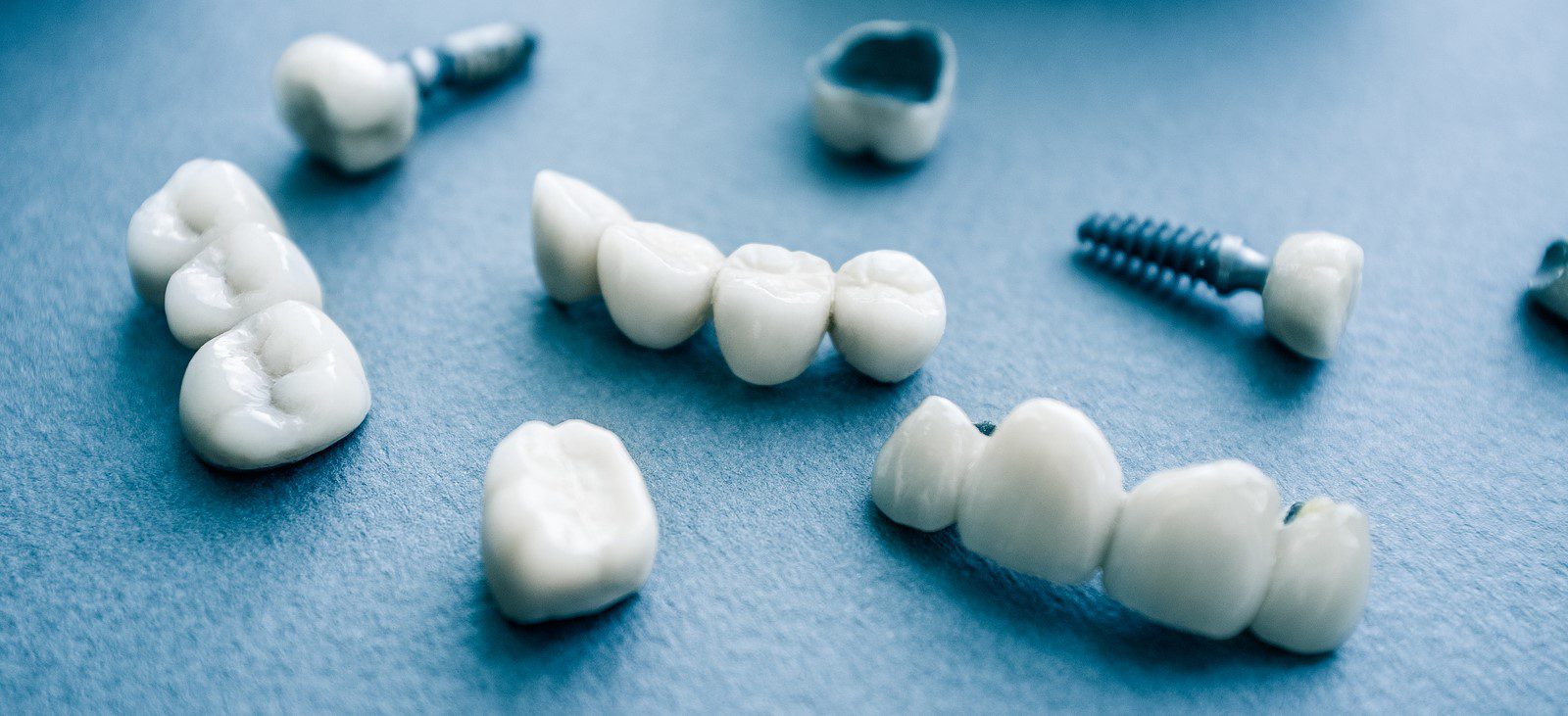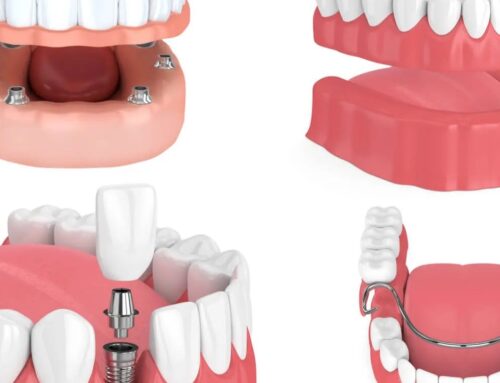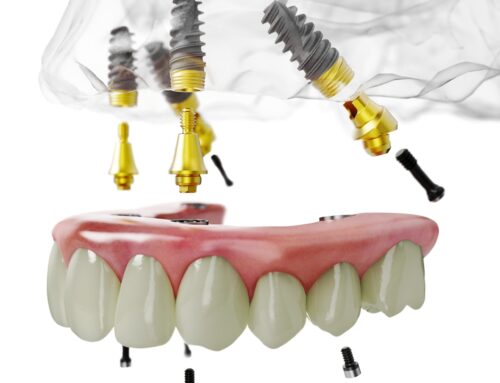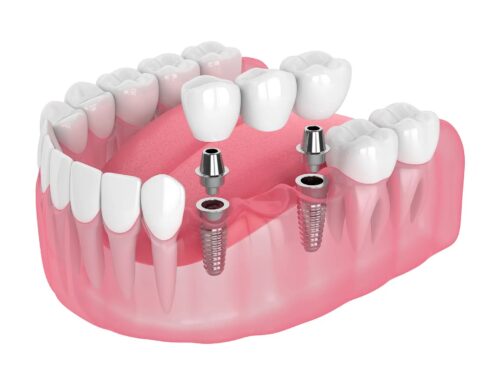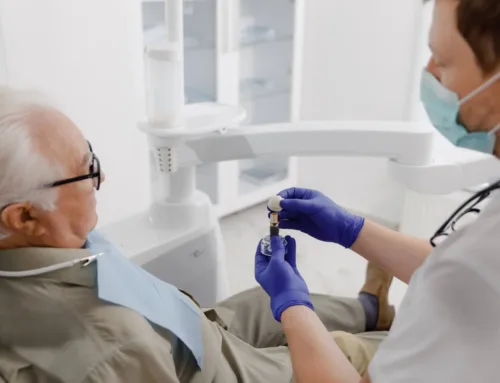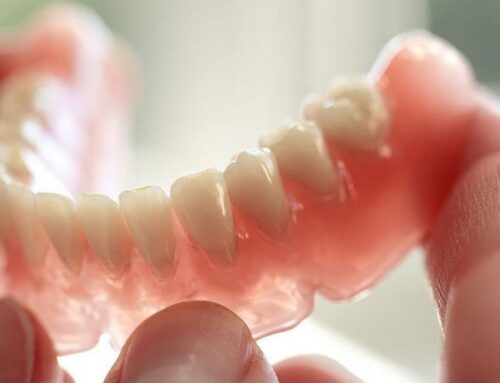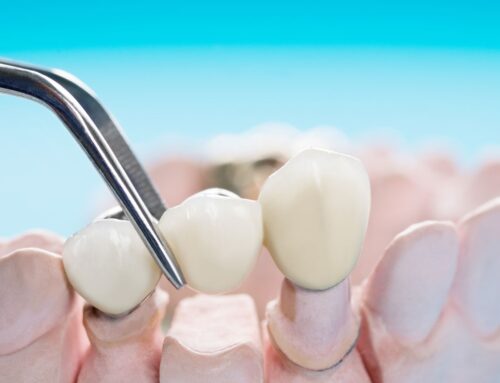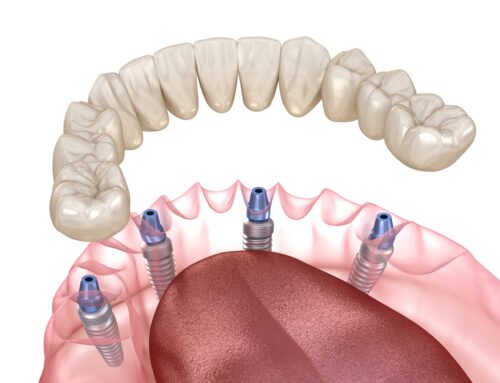The Lifespan of Different Dental Restorations
Implants, Crowns, Bridges & Fillings
Dental restorations are an integral part of modern dentistry. Dental restorations offer a solution to a wide range of oral health issues, from minor cavities to more complex structural damage. Whether you’re receiving a simple filling, a dental crown, bridge, or implant, it’s essential to understand the purpose of each restoration and how long they are expected to last.
At Georgian Dental, we believe that informed patients are empowered to make the best decisions for their oral health. Below, we will explore the lifespan of various dental restorations, the factors that influence their longevity, and emphasize how important proper care is. Understanding these aspects will help you maintain a healthy smile for years to come.
Different Types of Dental Restoration and Their Lifespan
Dental restorations vary both in their purpose and the materials used to create them. Each type of restoration is designed to address specific oral health concerns, whether it’s filling a cavity, protecting a damaged tooth, or replacing missing teeth altogether.
Let’s take a look at the most common types of dental restorations and their expected lifespans.
-
Fillings
Lifespan: 5-15 years depending on the materials used and care.
Fillings are one of the most common dental restorations. They are used to treat cavities caused by tooth decay by filling the space with a material that restores the tooth’s structure and function. Fillings can be made from various materials, including amalgam (metal), composite resin, gold, and porcelain.
Amalgam Fillings
These are made from a mixture of metals, including silver, mercury, tin, and copper. Amalgam fillings are known for their strength and durability, with an average lifespan of 10 to 15 years. Their metallic appearance makes them less popular for visible teeth but are a great option for back teeth where chewing forces are stronger.
Composite Fillings
These fillings are made from tooth-coloured resin materials and are popular for their aesthetic appeal. Composite fillings typically last 5 to 10 years. While they may not be as durable as amalgam, their ability to blend seamlessly with natural teeth make them a preferred choice for front teeth.
Gold Fillings
Gold is a highly durable material that can last 15 years or more, often outlasting other types of fillings. However, gold fillings are more expensive and less commonly used due to their cost and appearance.
Porcelain Fillings
Porcelain fillings are custom-made to fit the tooth. These fillings can last up to 15 years and are prized for their strength and ability to match the natural colour of the tooth. They are more expensive than composite fillings but offer excellent longevity.
The longevity of a filling depends not only on the materials used but also on how well it is cared for. Good oral hygiene, regular dental check-ups, and avoiding habits like teeth grinding or chewing on hard objects can help extend the lifespan on your fillings.
-
Crowns
Lifespan: 10-15 years, potentially longer with proper care.
Crowns, also known as caps, are used to cover and protect a damaged or weakened tooth. They are often recommended when a tooth has undergone significant decay or trauma. They are also used after a root canal treatment. Crowns can be used to improve the appearance of a misshapen or discoloured tooth.
Crowns are typically made from materials such as:
Porcelain
Porcelain crowns are valued for their natural appearance, as they can be matched to the colour of your surrounding teeth. They are often used for front teeth, where aesthetics are a priority. With proper care, porcelain crowns can last 10 to 15 years, though they may be more prone to chipping compared to other materials.
Porcelain-fused-to-metal (PFM)
These crowns combine the strength of metal with the aesthetics of porcelain. They are durable and can last 10 to 15 years, or even longer if properly cared for. Over time, the metal underneath the porcelain may become visible as the gumline recedes, which can affect the appearance of the crown.
Metal (gold or stainless steel)
Metal crowns are incredible durable and can last 15 years or more. They are often used for back teeth, where strength is a priority. While they don’t blend with the natural colour of teeth, their longevity makes them an excellent option for molars.
Zirconia
Zirconia crowns are a relatively new option that combines strength and aesthetics. They are highly durable, resistant to chipping, and can last over 15 years with proper care.
The key to maximizing the lifespan of your crown is maintaining excellent oral hygiene. This includes regular brushing and flossing around the crown. It’s also important to visit your dentist for regular check-ups to ensure the crown remains in good condition and address any potential issues early.
-
Bridges
Lifespan: 5-15 years, depending on your oral hygiene routine and materials used.
A dental bridge is a restoration used to replace one or more missing teeth by anchoring artificial teeth to adjacent natural teeth or implants. Bridges can be made from a variety of materials, including porcelain, porcelain-fused-to-metal, or zirconia.
Traditional bridges
These are the most common type of bridge, consisting of one or more artificial teeth (pontics) held in place by dental crowns on the natural teeth adjacent to the gap. Traditional bridges can last between 5 and 15 years. The longevity of the bridge depends on the strength of the supporting teeth and the patient’s oral hygiene practices.
Implant-supported bridges
In cases where there are multiple missing teeth, implant-supported bridges are a durable and effective option. These bridges are anchored to dental implants, providing more stability than traditional bridges. With proper care, implant-supported bridges can last well beyond 15 years, though the crowns on the implants may need replacement sooner.
Cantilever bridges
This type of bridge is used when there is only one adjacent tooth to support the restoration. While they are effective in certain cases, cantilever bridges may not last as long as traditional or implant-supported bridges due to the increased stress on the supporting tooth.
To prolong the lifespan of a bridge, patients must maintain good oral hygiene by brushing and flossing carefully around the bridge, focusing on the area where the artificial tooth meets the gumline. Regular dental visits are essential to monitor the health of the supporting teeth and ensure the bridge remains secure.
-
Dental Implants
Lifespan: With good care, dental implants should last a lifetime, however the crowns on implants may need replacement.
Dental implants are widely regarded as the most durable and long-lasting solution for replacing missing teeth. Unlike other restoration options, dental implants replace both the root and the crown of the tooth. The implant itself is a titanium post that is surgically placed into the jawbone, where it fuses with the bone through a process called osseointegration. Once the implant is secure, a crown is placed on top to restore the appearance and function of the tooth.
Implants are made to last a lifetime, with a success rate of over 95% for healthy patients. However, while the titanium implant can last indefinitely, the crown attached to the implant may need to be replaced after 10 to 15 years due to normal wear and tear.
Learn more about dental implants.
Factors that can influence the longevity of dental implants include:
- Bone health – Implants rely on healthy bone for stability. Conditions such as osteoporosis or untreated gum disease can compromise the bone structure and affect the success of the implant.
- Oral hygiene – Like natural teeth, dental implants require proper care. Regular brushing, flossing, and professional cleanings are necessary to prevent peri-implantitis, an infection that can lead to implant failure.
- Lifestyle habits – Smoking, excessive alcohol consumption, and poor diet can negatively impact the success of dental implants. Quitting smoking and adopting a healthy lifestyle can significantly improve the longevity of the implant.
Factors Affecting the Lifespan of Dental Restorations
While each type of dental restoration has a general lifespan, several factors can influence how long they last. Understanding these factors can help you take the necessary steps to extend the life of your restoration and maintain a healthy smile.
- Good Oral Hygiene Practices and Regular Check-Ups
One of the most significant factors affecting the lifespan of dental restorations is oral hygiene. Consistent brushing and flossing help remove plaque and bacteria that can lead to decay, gum disease, and damage to restorations. This is particularly important for patients with crowns, bridges, and implants, as plaque buildup around these restorations can compromise their integrity.
Regular dental check-ups are equally important, as they allow your dentist to monitor the condition of your restorations and address any issues early. Professional cleanings can also help remove plaque and tartar in hard-to-reach areas, reducing the risk of complications.
- Dietary Habits and Lifestyle Factors
What you eat and drink can have a significant impact on the longevity of your dental restorations. Consuming a diet high in sugary or acidic foods can increase the risk of decay and weaken fillings, crowns, and bridges. Hard foods like nuts or ice can also cause damage, especially to porcelain restorations.
Lifestyle habits such as smoking can negatively affect the health of your gums and bone structure, particularly for implant patients. Smoking slows down healing and increases the risk of infection, which can shorten the lifespan of dental restorations.
- Quality of Materials Used in Restorations
The quality of the materials used in dental restorations plays a crucial role in determining their lifespan. Higher-quality materials like gold, zirconia, and porcelain-fused-to-metal tend to last longer than lower-cost alternatives. Gold and zirconia crowns are highly durable and resistant to wear, while composite fillings, although aesthetically pleasing, may wear down more quickly, especially on molars that endure a lot of chewing force. When choosing a restoration, patients should consider a balance between cost, appearance, and longevity.
At Georgian Dental, we prioritize the use of high-quality materials for all our restorations, ensuring that our patients receive long-lasting and reliable solutions tailored to their specific needs.
Help Maintain Your Dental Restorations for Years to Come
- Brush and floss daily – Keeping your teeth and restorations clean is extremely important for preventing plaque buildup, gum disease, and decay around your restorations.
- Visit your dentist regularly – Routine check-ups allow your dentist to monitor the condition of your restorations, identify potential issues, and perform professional cleanings that can extend the life of your dental work.
- Be mindful of your diet – Avoid excessive consumption of sugary, acidic, or hard foods that can damage restorations. Eating a balanced diet that promotes overall oral health is essential.
- Quit smoking – Smoking negatively affects the health of your gums and bones, particularly for patients with implants, and can reduce the lifespan of your restorations.
- Address issues early – If you experience discomfort, sensitivity, or any signs of damage to your restorations, seek dental advice immediately. Early intervention can prevent more severe problems and prolong the lifespan of your restorations.
At Georgian Dental, we are committed to providing our patients with the highest standard of care to ensure their dental restorations last as long as possible. If you’re in need of a dental restoration, don’t hesitate to book an appointment with us! We’ll examine your mouth, learn more about you, and make recommendations on the best options for your unique needs.
Together, we’ll develop a personalized care plan that keeps your smile healthy and vibrant for years to come.
Appointment Request
If you’re interested in any of our procedures, and would like to meet with one of our dentists to discuss options, costs and get additional information, complete this short form and we’ll give you a call to arrange for a no-obligation appointment at our Barrie clinic.
